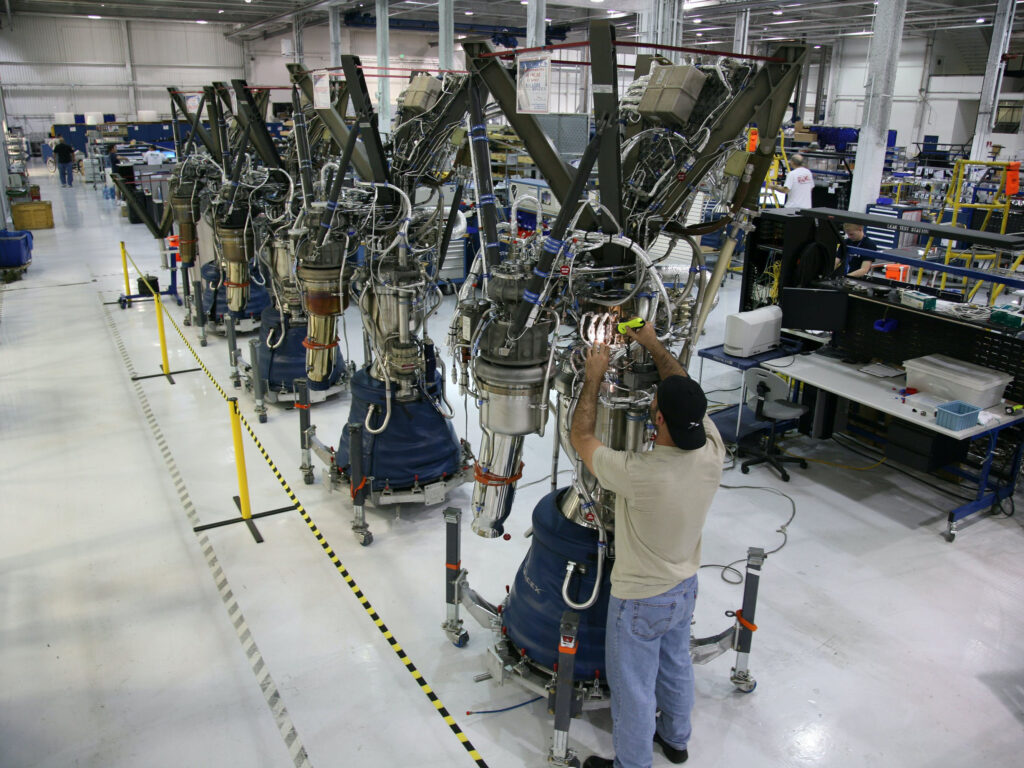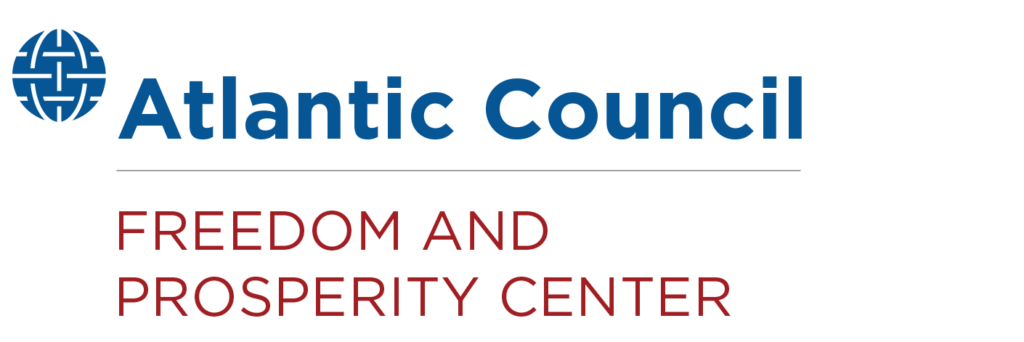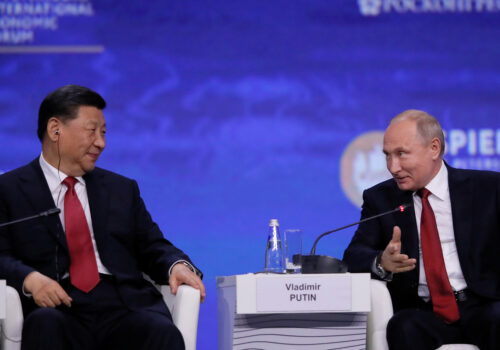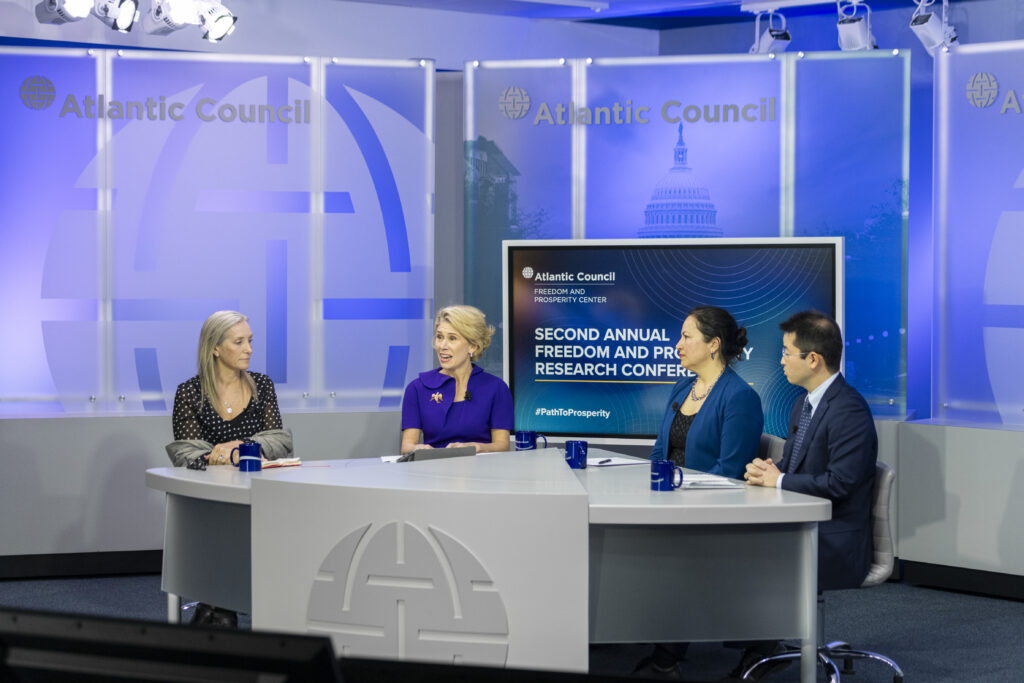Attracting foreign direct investments
Table of contents
- The freedom and FDI nexus
- The synergy of freedom and FDI: Georgia’s success story
- Policy recommendations: Where to start?
- Conclusion
The attraction of foreign direct investment (FDI) is a pivotal objective for countries seeking to bolster their economic development and global competitiveness. Several critical factors influence a nation’s ability to draw in FDI, and among these, economic freedom, institutions, and the rule of law stand out as essential determinants. This dynamic interplay between political and economic factors not only impacts a country’s FDI inflows but also shapes its overall economic landscape and prospects for long-term prosperity.
The influence of institutional characteristics on FDI is a topic of paramount importance in the realm of international economics and global business. Institutions, which encompass a country’s legal, regulatory, and governance frameworks, significantly impact the decisions of multinational corporations when considering investment destinations. These institutional characteristics serve as a critical lens through which investors assess the risks and opportunities associated with a particular host country.
Democracy, as a system of governance characterized by political freedoms, accountability, and the rule of law, has often been associated with greater transparency and stability. Similarly, economic freedom, gauged by factors such as regulatory efficiency, property rights, and trade openness, creates an environment conducive to business activity. Institutions, including the quality of government institutions and their effectiveness in safeguarding property rights and enforcing contracts, play a pivotal role in shaping investor confidence. Moreover, the rule of law provides a foundation of legal certainty, which is essential for businesses operating within a country’s borders.
This report delves into the multifaceted relationship between freedom and FDI attraction using the Atlantic Council’s Freedom and Prosperity Indexes. By examining the mechanisms through which institutions influence investment decisions, we seek to shed light on the nuanced dynamics that determine a country’s attractiveness to foreign investors. Furthermore, we will explore the strategies that countries employ to improve their institutional frameworks, thereby enhancing their prospects for increased FDI inflows and sustainable economic growth. In doing so, we aim to contribute to a deeper understanding of the pivotal role that institutions play in shaping the global landscape of foreign direct investment. The objective is to offer recommendations and insights that can assist in achieving this overarching goal.
To begin, this paper will delve into the significance of strengthening democracy and various facets of freedom, drawing upon the Freedom and Prosperity Indexes and other pertinent evidence. This section will underscore why bolstering these elements is not only beneficial but also essential for the enhancement of FDI. In the second section, we highlight the Georgian case study to illustrate the tangible benefits of freedom in fostering an environment conducive to FDI. The final section of this report will provide actionable recommendations focusing on the practical integration of democracy and freedom-strengthening components into initiatives aimed at addressing fragility, thereby fostering a more stable and prosperous global landscape for FDI.
The freedom and FDI nexus
The Atlantic Council’s Freedom Index plays a pivotal role in assessing the intricate interplay between a nation’s freedom environment and its attractiveness to foreign investors, particularly in the realm of FDI. This comprehensive tool evaluates a country’s overall level of freedom across economic, political, and legal dimensions. The literature on FDI already has extensively discussed the impact of a nation’s institutional quality on FDI inflows.1See, for example, J. De Haan, S. Lundström, and J. E. Sturm, “Market‐oriented Institutions and Policies and Economic Growth: A Critical Survey,” Journal of Economic Surveys 20, no. 2 (2006): 157-191; and P. L. Ghazalian and F. Amponsem, “The Effects of Economic Freedom on FDI Inflows: An Empirical Analysis,” Applied Economics 51, no. 11 (2019): 1111-1132. We aim to use the index data to further investigate this relationship.
Countries classified as “free” according to the Freedom Index exhibit the most robust FDI per capita, boasting an average of $2,200 of FDI investment per person in 2022. This remarkable FDI per capita suggests a strong correlation between economic freedom, political stability, and foreign investment, contributing to these nations’ thriving economies and prosperity. (see Figure 1). “Free” economies significantly outperform “mostly free” economies in terms of FDI per capita. “Mostly free” countries may have various factors, such as some restrictions on economic activities or less developed legal and political institutions, which can result in a lower level of FDI per capita. “Mostly unfree” and “unfree” countries lag far behind in terms of FDI. Unfree economies often struggle with issues such as political instability, weak property rights, and high levels of corruption. These factors erode investor confidence and hinder the flow of foreign capital. As a result, these nations find themselves at a significant disadvantage when it comes to FDI.
This correlation remains if we look at FDI levels as a percentage of gross domestic product (GDP) (see Figure 1, gray line).
Europe, notably Western Europe, emerges as the preeminent region characterized by the highest degree of freedom (see Figure 2). Impressively, out of the forty-five countries categorized as “free,” thirty belong to Europe. Remarkably, the top ten nations in this category are all located within the confines of this continent. When we examine the relationship between freedom and FDI, we find that countries with high levels of freedom are associated with substantial FDI inflows. Investors are drawn to these nations due to their strong legal frameworks, well-defined property rights, and transparent governance structures, which provide a stable and welcoming environment for foreign capital.
In North America, both nations are in the “free” category: the United States and Canada. Neighboring Mexico is classified as “mostly free” and highly attractive to foreign investors, who value the stable and business-friendly climate it offers. The East Asia and the Pacific region also plays a prominent role in the context of FDI. Six out of the eighteen economies in this region, Australia, New Zealand, Japan, Taiwan, South Korea, and Singapore, fall into the “free” category. These nations have not only embraced economic and political freedom but also attracted substantial FDI, leading to economic growth and prosperity. While most regions have their share of mostly free and mostly unfree countries, Europe continues to dominate the “free” category with thirty out of a total of forty-three countries. It serves as a prime example of how a commitment to freedom, both economically and politically, can be a driving force behind attracting FDI and fostering economic development.
Economic development also plays a key role in terms of FDI attraction (see Figure 3). Low-income countries are mostly categorized as “unfree” and are less likely to attract FDI. Macroeconomic factors—trade freedom, quality of infrastructure, market size, and human capital, for instance—positively impact FDI.2S. Imtiaz and M. F. Bashir, “Economic Freedom and Foreign Direct Investment in South Asian Countries,” Theoretical & Applied Economics 24, no. 2 (2017). These elements create an attractive investment landscape for foreign investors seeking opportunities with strong domestic demand. Economic freedom serves as a proxy for market size and return on investment in developing economies, making it an appealing factor for FDI.3A. Badri and A. Sheshgelanib, “Economic Freedom and FDI in Selected Developing Countries,” International Journal of Economics and Financial Research 2, no. 5 (2017): 82-87. Furthermore, the level of openness and domestic market size plays a role in FDI attraction, with trade freedom being statistically significant in certain regions.4C. S. Ho and H.A. Rashid, “Macroeconomic and Country Specific Determinants of FDI,” Business Review 18, no. 1 (2011): 219-226. Moreover, some literature has highlighted that business transparency and an open economy are vital aspects that promote FDI inflows.5Z. Drabek and W. Payne, “The Impact of Transparency on Foreign Direct Investment, Journal of Economic Integration (2002): 777-810. These mechanisms demonstrate the intricate interplay between macroeconomic, governance, and trade-related factors in shaping the FDI landscape within different regions.
Another critical aspect of a nation’s freedom environment is the legal framework, which includes elements like the rule of law and property rights. A well-functioning rule of law serves as a bulwark for private investments, encouraging entrepreneurial endeavors.6J. L. Staats and G. Biglaiser, “Foreign Direct Investment in Latin America: The Importance of Judicial Strength and Rule of Law, International Studies Quarterly 56, no. 1 (2012): 193-202. It significantly reduces transaction costs and mitigates the risks and uncertainties associated with future profitability. Conversely, when a government fails to establish and protect a robust legal system and safeguard property rights, as assessed by this subindex, it naturally dampens the enthusiasm of multinational enterprises (MNEs) for engaging in FDI within that particular host environment. In such cases, the prospects of MNEs participating in productive and entrepreneurial ventures are substantially diminished.7X. Wang, L. C. Xu, and T. Zhu, “Foreign Direct Investment under a Weak Rule of Law: Theory and Evidence from China,” Economics of Transition 20, no. 3 (2012), 401-424.
Any restrictions imposed on international trade can result in significant operational expenses for companies.8De Haan, Lundström, and Sturm, “Market‐oriented Institutions.” For MNEs to achieve their economic goals, the free flow of goods and services within and between primary, intermediate, and final markets is considered a vital necessity, as evaluated by the Freedom index. Interference with international trade through measures like tariffs, nontariff barriers, and other trade-related administrative obstacles would impede the operations of foreign branches and affiliates of MNEs in accessing and capitalizing on global networks, ultimately hampering their productive endeavors.9J. Torriti and E. Ikpe, “Administrative Costs of Regulation and Foreign Direct Investment: The Standard Cost Model in Non-OECD Countries,” Review of World Economics 151, no. 1 (2015): 127-144.
In addition, the limitations placed on the international movement of capital and labor are both critical factors influencing FDI. These limitations increase transaction costs for MNEs, consequently reducing the inflow of FDI.10R. Cebula and J. Clark, “Impact of Economic Freedom, Regulatory Quality, and Taxation on the Per Capita Real Income: An Analysis for OECD Nations and Non-G8 OECD Nations,” MPRA Paper 56605, University Library of Munich, Germany, 2014. Restrictive regulations in business, labor, and credit markets deter FDI. Such regulations result in additional production and transaction costs, placing significant burdens on private investment and the operations of companies, including the foreign subsidiaries of MNEs. These regulations often serve as substantial barriers to entry, leading to reduced FDI inflows.11F. J. Contractor et al., “How Do Country Regulations and Business Environment Impact Foreign Direct Investment (FDI) Inflows?,” International Business Review, 29, no. 2 (2020), 101640.
Finally, political freedom plays a pivotal role in fostering democratic governance, which empowers citizens to participate in the decision-making processes of their nation. This framework has been shown to positively influence FDI inflows. Empirical studies have indicated the significance of political freedom in attracting foreign investment.12M. Busse and C. Hefeker, “Political Risk, Institutions and Foreign Direct Investment,” European Journal of Political Economy 23, no. 2 (2007): 397-415. Modifications in governmental policies or political structures hold the potential to impact the investment strategies of multinational corporations. This, in turn, affects the risk premium considered in investment projects and, consequently, the decision-making process concerning the choice of location, all of which are influenced by political risk.
This suggests that a democratic and politically free system encourages foreign investors to engage with a nation.13Q. Li and T. Vashchilko, “Dyadic Military Conflict, Security Alliances, and Bilateral FDI Flows,” Journal of International Business Studies 41 (2010): 765-782. Furthermore, research emphasizes the long-lasting influence of political freedom on a country’s capacity to attract FDI.14A. Rodríguez‐Pose and G. Cols, “The Determinants of Foreign Direct Investment in Sub‐Saharan Africa: What Role for Governance?,” Regional Science Policy & Practice 9, no. 2 (2017): 63-81. In light of this evidence, it becomes evident that political freedom is not only a fundamental aspect of democratic governance but also a crucial determinant of a country’s capacity to attract FDI.
The synergy of freedom and FDI: Georgia’s success story
Georgia, located at the crossroads of Eastern Europe and Western Asia, has experienced a remarkable transformation in recent years, becoming a magnet for FDI. Georgia is particularly relevant when studying the effect of freedom and prosperity since the country has switched from “mostly unfree” in 1995 to “free” in 2018 (see Table 1). The nation has undergone sweeping economic reforms since gaining independence in 1991, resulting in a relatively well-functioning and stable market economy.
Underpinning this transformation is Georgia’s commitment to political and economic freedom. The government initiated a series of reforms aimed at creating an open and competitive business environment. This included streamlining bureaucratic procedures, simplifying tax systems, and enhancing property rights, all of which significantly reduced the barriers to entry for businesses. Consequently, Georgia earned a reputation as one of the easiest places to start and conduct business, attracting a diverse range of investors from across the globe.
Over the period spanning from 2004 to 2019, Georgia’s average economic growth rate surpassed 5%, a testament to the efficacy of its comprehensive reforms. Simultaneously, the nation garnered accolades in global indices measuring freedom and ease of doing business. Notably, in the 2020 World Bank’s Ease of Doing Business index, Georgia ranked seventh, underscoring its commitment to creating a business-friendly environment. This success can be attributed to the government’s unwavering focus on fiscal and monetary policies aimed at maintaining low deficits, controlling inflation, and sustaining a floating exchange rate (i.e., unencumbered by government controls or limits).
Despite these achievements, it is important to acknowledge that Georgia’s economic trajectory has not been without external influences. Regional developments, such as sanctions on Russia, have exerted an impact on the country’s economic landscape. Additionally, the strength of the US dollar and other global factors have also played a role in shaping Georgia’s economic circumstances. These external forces have necessitated adaptability and resilience on Georgia’s part as it continues to progress on its path to economic prosperity.
Georgia embarked on a fresh chapter under a new government, following the peaceful Rose Revolution in 2003 (see Figure 4). Georgia’s economy began to experience growth, driven by the implementation of political and economic stabilization initiatives, but it was significant policy shifts and reforms that accelerated its journey toward economic freedom. In 2004, the nation cut rates for existing taxes, implementing a flat 20 percent income tax and a 15 percent corporate profit tax, creating a favorable fiscal environment for businesses. This tax structure significantly reduced the financial burden on investors, promoting economic growth and entrepreneurship. Georgia introduced the “single window” system for business registration in 2005. This groundbreaking reform simplified bureaucratic procedures, enabling entrepreneurs to complete company registration and obtain necessary licenses within a few hours, making it one of the easiest places to start and conduct business. From the late 2000s through the early 2010s, Georgia embarked on a comprehensive land registry reform, significantly bolstering property rights protection. This reform secured land transactions and simplified property ownership, enhancing investor confidence. The commitment to free trade agreements, which started in the mid-2000s and continues to this day, has been emblematic of Georgia’s dedication to economic freedom. These agreements expanded market access for Georgian businesses, fostering import and export activities, and promoting international trade. The pursuit of anti-corruption measures, exemplified by the zero-tolerance policy, has been active since the early 2000s. This approach brought about heightened transparency and accountability in the public sector, further solidifying Georgia’s reputation as an attractive investment destination.

Georgia’s progression toward political freedom commenced in the early 2000s with significant developments in establishing democratic governance and safeguarding civil liberties. Here, too, the Rose Revolution marked a turning point as Georgia embraced democratic governance, ensuring political stability through regular elections, a multiparty system, and the peaceful transition of power. Over the years, Georgia made substantial progress in safeguarding civil liberties, particularly freedom of speech, media, and assembly. This commitment to civil liberties fostered a vibrant and open society where citizens could freely express their views and engage in public discourse. The establishment of strong and independent political institutions, which started in the early 2000s, solidified the rule of law and prevented political interference. The judiciary and law enforcement agencies operated without undue political influence. The zero-tolerance policy against corruption, initiated in the early 2000s, brought about increased transparency and accountability in the public sector, reinforcing political freedom by instilling trust and credibility in the government’s functioning.
Legal freedom in Georgia has been shaped by a transparent and efficient legal system that upholds the rule of law, protects property rights, and ensures access to justice for its citizens. Georgia’s commitment to a transparent legal system gained momentum in the early 2000s, ensuring the fair and equitable treatment of individuals and businesses. Transparency became essential in upholding the rule of law and ensuring that legal processes were just and impartial. Property rights protection received a significant boost through the comprehensive land registry reform initiated in the mid-2000s, continuing into the early 2010s. This reform enhanced the security of land transactions and simplified property ownership, instilling investor confidence. Efficient dispute resolution mechanisms were integrated into Georgia’s legal system, ensuring the timely and fair resolution of legal conflicts. These mechanisms were developed over the years, ensuring that individuals and businesses had access to justice when disputes arose. Furthermore, Georgia’s legal system was designed to enable citizens to seek legal remedies when their rights were violated. This commitment, developed over the years, upheld the rule of law, ensuring that legal processes were just and impartial, and strengthened the overall legal freedom in Georgia.
Hence, over the past two decades, Georgia’s resolute commitment to enhancing economic and political freedom has significantly impacted the evolution of FDI in the country (see Figure 4). The early wave of economic reforms and property rights protection in the 2000s created a favorable environment for FDI, with investments pouring into sectors like real estate and infrastructure. The political watershed moment of the Rose Revolution in 2003 further bolstered Georgia’s reputation as a destination for FDI, as it ushered in a more open and transparent political landscape. Georgia’s consistent improvement in economic freedom rankings has been accompanied by increased FDI, as investors seek the stability and business-friendly climate offered by the country. Its relative political stability, especially in comparison to neighboring nations, has also made it an attractive prospect for FDI. Although regional conflicts, such as the Russo-Georgian War in 2008, briefly disrupted FDI flows, Georgia’s resilience and commitment to freedom have contributed to a steady recovery. Moreover, the country’s strategic location at the crossroads of Europe and Asia, combined with its free trade agreements, has positioned it as an appealing destination for FDI, particularly in logistics and trade-related sectors. Recent trends indicate a growing influx of FDI, with a focus on tourism, manufacturing, and services, driven by streamlined regulations and reduced bureaucracy, solidifying Georgia’s status as a burgeoning hub for foreign investment. However, it is of prime importance to mention that the COVID-19 crisis has strongly affected FDI, which has not yet regained earlier levels.
Policy recommendations: Where to start?
The road map for policymakers seeking to enhance a country’s attractiveness for FDI involves multiple interconnected factors. In order to efficiently build this section, we estimate the effect of each subindex and indicator of the Freedom Index on FDI as a percentage of GDP (see Annex in the PDF version). A simplified version of the results is displayed in Table 2. The higher the number of “+”, the greater correlation between the variable of interest and FDI. In line with our argument, we first find that a higher freedom score is strongly associated with a higher level of FDI. This positive correlation underscores the pivotal role that a comprehensive commitment to freedom plays in creating an environment conducive to international capital inflow.
Economic freedom stands as a cornerstone in fostering FDI by providing an environment conducive to business growth and innovation. Nations that prioritize economic freedom often witness increased FDI due to the enhanced attractiveness of their business landscapes. For instance, countries like Singapore, renowned for its economic freedoms, have strategically positioned themselves as magnets for foreign investment. Singapore’s commitment to free-market principles, low trade barriers, and efficient regulatory frameworks has not only propelled its own economic growth but has also made it an enticing hub for international investors. Similarly, Ireland’s implementation of low corporate tax rates and favorable business policies has led to a surge in FDI, with multinational corporations establishing their European headquarters in the country. The positive correlation between economic freedom and FDI highlights the importance of embracing policies that encourage entrepreneurship, free markets, and minimal government intervention to attract substantial foreign investments.
In particular, our estimations show that property rights play a pivotal role in shaping the landscape for FDI, serving as a critical factor that influences investor confidence and security. Nations with robust protection of property rights are often more successful in attracting FDI, as investors seek assurance that their assets and investments will be safeguarded against arbitrary expropriation or infringement. Estonia’s post-Soviet era transformation, marked by a commitment to the rule of law and property rights, exemplifies this correlation. The establishment of a judicial system ensuring fair dispute resolution and robust property rights protection has positioned Estonia as a key destination for foreign investment in the Baltic region. Additionally, countries with clear and well-enforced property rights frameworks, such as Singapore, have successfully attracted FDI by assuring investors that their intellectual and tangible assets are secure. The link between property rights and FDI underscores the significance of legal frameworks that prioritize and protect the rights of individuals and businesses, fostering an environment conducive to international investment.
While political freedom is an important aspect of a conducive investment environment, its correlation with FDI is not very strong due to several reasons. First, investors, especially multinational corporations, often prioritize economic factors and market conditions over political considerations. Economic freedom, ease of doing business, and market potential tend to have a more direct impact on investment decisions. Moreover, political freedom is a multifaceted concept that includes components like civil liberties, political rights, and legislative constraints on the executive. The presence of political freedom doesn’t necessarily guarantee a stable and predictable business environment. Investors may be cautious if there is a history of political instability, frequent changes in government, or uncertainties related to policy continuity. Additionally, some authoritarian regimes with limited political freedom have managed to attract significant FDI by offering economic incentives, stable regulatory environments, and infrastructure development. China is a notable example where the government’s control is high, but its economic policies and massive infrastructure projects have made it an attractive destination for foreign investors.
In contrast, the legal subindex presents the strongest positive association with FDI. It suggests the necessity to strengthen the legal and regulatory framework. This entails creating a judicial system that assures fair dispute resolution and robust protection of property rights. Transparency and predictability in legal proceedings are key, as they instill confidence in foreign investors who need to be certain their investments are secure and enforceable. Estonia adopted a model of democracy, political stability, and the rule of law in its post-Soviet era. Alongside its commitment to transparency and accountability, these reforms positioned Estonia as a magnet for foreign investment in the Baltic region. Estonia also streamlined administrative procedures and one-stop shop mechanisms for investors, further enhancing the ease of doing business. This practical approach has been integral to its success in attracting FDI.
Security, as an indicator within the legal subindex, emerges as one of the most determinant factors influencing FDI. Investors prioritize nations with high levels of security to safeguard their investments against various risks, including political instability, civil unrest, and threats to property. A secure environment ensures the protection of businesses, employees, and assets, fostering a sense of confidence among investors, as Estonia has experienced. Singapore, which also is renowned for economic freedoms, has invested significantly in maintaining high levels of security, contributing to its appeal as a stable and secure destination for foreign investment. Similarly, Estonia serves as a compelling example of how a strong rule of law reinforces foreign direct investment. Following its post-Soviet era, Estonia undertook comprehensive legal reforms, establishing a judicial system that prioritizes fair dispute resolution and robust protection of property rights. This commitment to transparency and accountability has positioned Estonia as a magnet for foreign investment in the Baltic region. Conversely, nations facing challenges in legal freedom and security often experience difficulties in attracting foreign investment. Countries with weak legal systems, rampant corruption, and inadequate security measures may struggle to instill confidence in investors. In such cases, the lack of legal protection and security becomes a deterrent, hindering the inflow of foreign capital and impeding economic growth.
By taking these political recommendations into account, governments create an environment that not only attracts foreign investment but also promotes political stability, transparency, and accountability. This fosters a win-win situation where foreign investors can thrive, and host countries can reap the economic benefits of increased FDI.

Conclusion
Freedom—political, legal, and economic—is a crucial factor in attracting FDI and fostering economic growth. As we’ve seen, regions with higher levels of freedom tend to receive more FDI, driven by strong legal frameworks, well-defined property rights, and transparent governance structures. Freedom, as demonstrated by the data and the example of Georgia, plays a vital role in shaping the global landscape of FDI. Encouraging countries to prioritize and embrace freedom can be a powerful catalyst for economic development and prosperity on a global scale.
About the authors
Jérémie Bertrand, Professor of Finance and Deputy Academic Director – Master PGE, IÉSEG School of Management, France
Joseph Lemoine is a director at the Atlantic Council’s Freedom and Prosperity Center
Dan Negrea is the senior director of the Atlantic Council’s Freedom and Prosperity Center
Caroline Perrin, Research consultant, World Bank, and Postdoctoral Researcher, Utrecht University, Netherlands
Related content

The Freedom and Prosperity Center aims to increase the prosperity of the poor and marginalized in developing countries and to explore the nature of the relationship between freedom and prosperity in both developing and developed nations.
Image: Photo by Ricardo Gomez Angel on Unsplash


